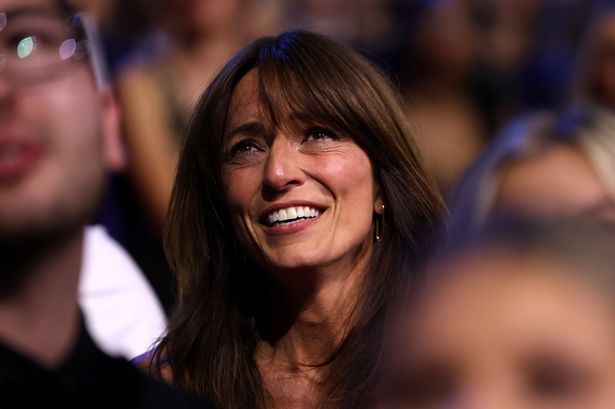Davina revealed she has been diagnosed with breast cancer and has undergone surgery
Presenter Davina McCall has revealed that she has been diagnosed with breast cancer, spotting a lump after checks recommended by friend and fellow TV host Lorraine Kelly. Davina underwent surgery three weeks ago to remove a lump.
The TV presenter shared a video on her Instagram page on Saturday revealing the news in the hope that it “might help someone”.
McCall said she found a lump a few weeks ago which “came and went” and was driven to get it checked after seeing posters urging women to “check your breasts” while working on ITV ’s Lorraine show.
She said: “I just wanted to tell you that I have had breast cancer. I found a lump a few weeks ago, and it came and went.” She added: “So I had a biopsy. I found out it was indeed breast cancer, and I had it taken out in a lumpectomy nearly three weeks ago … It was very, very small, so I got it very, very early, which is incredibly lucky, but I am so relieved to have had it removed, and to know that it hasn’t spread.”
Davina also said she had ‘dense breasts’, which is a risk factor in developing breast cancer and makes it harder to detect. Justin Stebbing, Professor of Biomedical Sciences at Anglia Ruskin University, said b reast density is a ‘significant yet often overlooked factor in breast cancer awareness, risk assessment and screening practices’
He said: ” Breast density refers to the proportions of glandular and connective tissue compared to fatty tissue in the breast, as seen on a mammogram. Simply put, dense breasts have more glandular and fibrous tissue and less fat. On a mammogram, both dense tissue and tumours appear white, making it harder to detect abnormalities in women with dense breasts.
“This masking effect can lead to cancers being missed during routine screening, which is why breast density is not just a risk factor for developing breast cancer, but also for having it go undetected until it is more advanced.”
Professor Stebbing said women with dense breasts face a higher risk of developing breast cancer compared to women with less dense, fattier breasts. He added: “A major study involving more than 33,000 women found that those with dense breasts were nearly twice as likely to develop breast cancer than those with low breast density.”
The increased risk is seen across both pre-menopausal younger women and post-menopausal older women, although the proportion of women. W omen with the lowest breast density have about a 6% lifetime risk of developing breast cancer after age 50, while those with the highest density face a risk closer to 15%.
While mammograms can detect nine out of ten cancers in women with mostly fatty breasts, the sensitivity drops to about seven out of ten in women with extremely dense breasts.
This means that tumours can be missed . Professor Stebbing told The Conversation : ” Breast density is now recognised as one of the most important risk factors for breast cancer, even as much as family history or other commonly discussed risk factors.”
About 40% of women fall into the higher density categories, and dense breasts are common in younger women, those taking hormone replacement therapy, and those with certain genetic backgrounds and ethnicities. Breast density can also be influenced by lifestyle and hormonal factors, and it tends to decrease with age and higher body mass index and obesity.
A recent UK survey showed that most women aren’t aware of their breast density. In the US, new regulations require that all women undergoing mammography be notified if they have dense breasts.
Professor Stebbing said: “It is important to remember that the majority of women with dense breasts will not develop breast cancer. Breast density is just one factor among many, and decisions about screening and risk reduction should be made on an individual basis.
“For women with dense breasts, discussing options for supplemental screening with their doctor is recommended.”
Source: Mirror

Leave a Reply